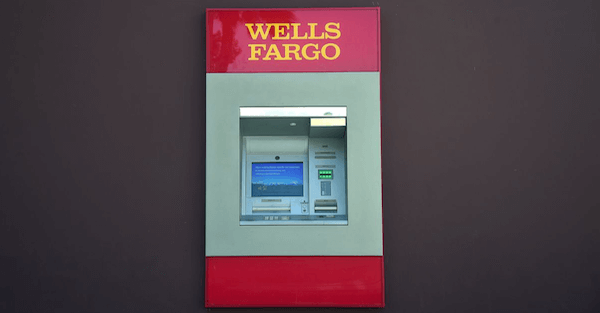Another day, another major banking scandal. It’s getting to the point where you can practically set your watch to these things.
The latest involves our old friend Wells Fargo. The Wall Street Journal reported last night that Wells has been screwing its customers on foreign currency exchange rates.
According to the Journal, Wells Fargo conducted an internal review of its fee arrangements and found that they had massively overcharged 88% of the sampled customers.
For example, the bank might have signed a contract with a customer to charge 0.15% on foreign currency transactions, but instead charged as much as 4%… about 26x higher than agreed.
It’s absurd to begin with that a bank would charge even a small percentage-based commission on foreign currency transactions (much less 4%), especially given that most of the transactions were to exchange euros and US dollars.
Sure, commissions are common in many industries.
When you list your house for sale, for example, your real estate agent receives a commission when s/he finds a buyer and closes the deal.
Real estate commissions often range between 2% to 6%. But agents earn this money because houses are big, illiquid assets. And it often takes a lot of time and work to close a sale.
But Wells Fargo has been charging huge commissions on buying and selling MONEY.
The foreign exchange (FOREX) market trades around $5.3 trillion each day (compare that to about $200 billion for US equities). That makes the US dollar / Euro trade literally one of THE most popular financial transactions in the world.
Billions upon billions of dollars and euros are exchanged every single business day of the week, around the clock, through electronic trading platforms.
It’s not like some currency trader at Wells Fargo ever had to lift a finger trying to find a buyer for his customer’s euros.
Anyone who has ever traded FOREX knows that it takes a fraction of a second to buy/sell major currencies.
There’s zero work involved on Wells Fargo’s end. Yet they charge a steep commission as if they have to put in all sorts of time and effort to buy and sell currency. It’s ridiculous.
But even worse, the bank formally agreed with its customers to charge a set fee. And then they totally violated those promises simply because it suited their interests.
How utterly, completely pathetic.
Bear in mind, this is the same bank that was caught creating fake accounts and charging fees to unsuspecting consumers without their consent, also because it suited their interests…
… and that this is an industry that has a track record of constantly violating their customers’ trust.
These banks have been caught red-handed illegally colluding to fix interest rates and exchange rates.
They have manipulated asset prices and knowingly sold their customers toxic assets.
They have invested their customers’ hard-earned savings in astonishingly stupid, no-money down loans to borrowers who had no hope of repaying the debt.
They use every accounting trick in the book to misstate their true financial condition, including the utter farce of carrying Volcker Rule assets on their books at 100 cents on the dollar… or mysteriously reclassifying their bond portfolios in a way to hide losses.
They reward themselves the most magnificent bonuses when times are good.
And when the house of cards begins to fall, they go to the public with hat in hand, claiming that they’re too big and important to lose any money.
Despite taking the public’s bailout money, these banks treat their customers with such contempt and suspicion. They make you feel like you’re committing a crime when you request a cash withdrawal of your own money.
It’s truly remarkable that this industry has any credibility left.
The good news is that it won’t last.
Banks no longer have a monopoly on finance. Technology already makes it possible to conduct just about any transaction you need outside the banking system.
You can deposit and withdraw funds, borrow money, exchange currency, invest your savings, pay bills, transfer funds, make online payments, etc. with cryptocurrencies, Peer-to-Peer platforms, and various blockchains.
And these technologies are often better, faster, and cheaper than the traditional banking system.
History tells us that technology almost invariably puts entrenched industries out of business.
E-commerce is obliterating traditional retail. Digital media is destroying print media.
And it’s only a matter of time before cryptofinance displaces the banking system.
Whether or not you think Bitcoin is a bubble at $10,000, it’s still worth understanding the enormous potential (and opportunities) of what these technologies can provide.
Because the alternative of dealing with Wells Fargo isn’t that attractive.








